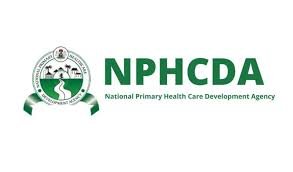As Nigeria intensifies its national immunisation campaign, the federal government is shifting focus to underserved and high-risk communities, reaching over 61.5 million people including millions of children with life-saving vaccines since October 2023.
Speaking during a press briefing on Tuesday in Abuja to mark the 2025 African Vaccination Week, Executive Director of the National Primary Health Care Development Agency (NPHCDA), Dr. Muyi Aina, revealed that a new nationwide vaccination strategy is being guided by lessons from Nigeria’s successful polio eradication efforts.
“Our aim is to guarantee that every child receives their vaccinations,” Aina said. “We have identified 540,000 settlements and have already reached 92 percent of children in these high-risk areas.”
In a significant milestone, the government disclosed that more than 13 million teenage girls have now received the Human Papillomavirus (HPV) vaccine, which is available nationwide. Additionally, 101,158 children have been administered the newly introduced malaria vaccine, with Kebbi and Bayelsa States serving as pilot locations.
To overcome infrastructure challenges, the government—supported by UNICEF and GAVI—is rolling out 1,653 solar-powered refrigerators and establishing new vaccine hubs in Lagos and Kano. This logistical backbone supports ongoing efforts to curb cholera outbreaks and control Mpox, with more than 4,300 individuals vaccinated against the latter.
Despite this progress, Aina warned that the fight against vaccine-derived poliovirus type 2 (cVPV2) is not over, citing 17 confirmed cases in 2025. He noted that Nigeria is now deploying a new strategic approach to contain and prevent further spread.
Also speaking at the event, Dr. Chikwe Ihekweazu, the World Health Organization’s Regional Director for Africa, underscored the importance of collective action: “Immunisation is not only a right but also a collective responsibility,” he said. “This year’s theme, ‘Immunisation for all is humanly possible,’ reminds us that together, we can ensure every child is reached.”
The renewed drive marks a pivotal moment in Nigeria’s health agenda, as the country aims not only to protect its population from preventable diseases but also to build a resilient, community-driven public health infrastructure.



